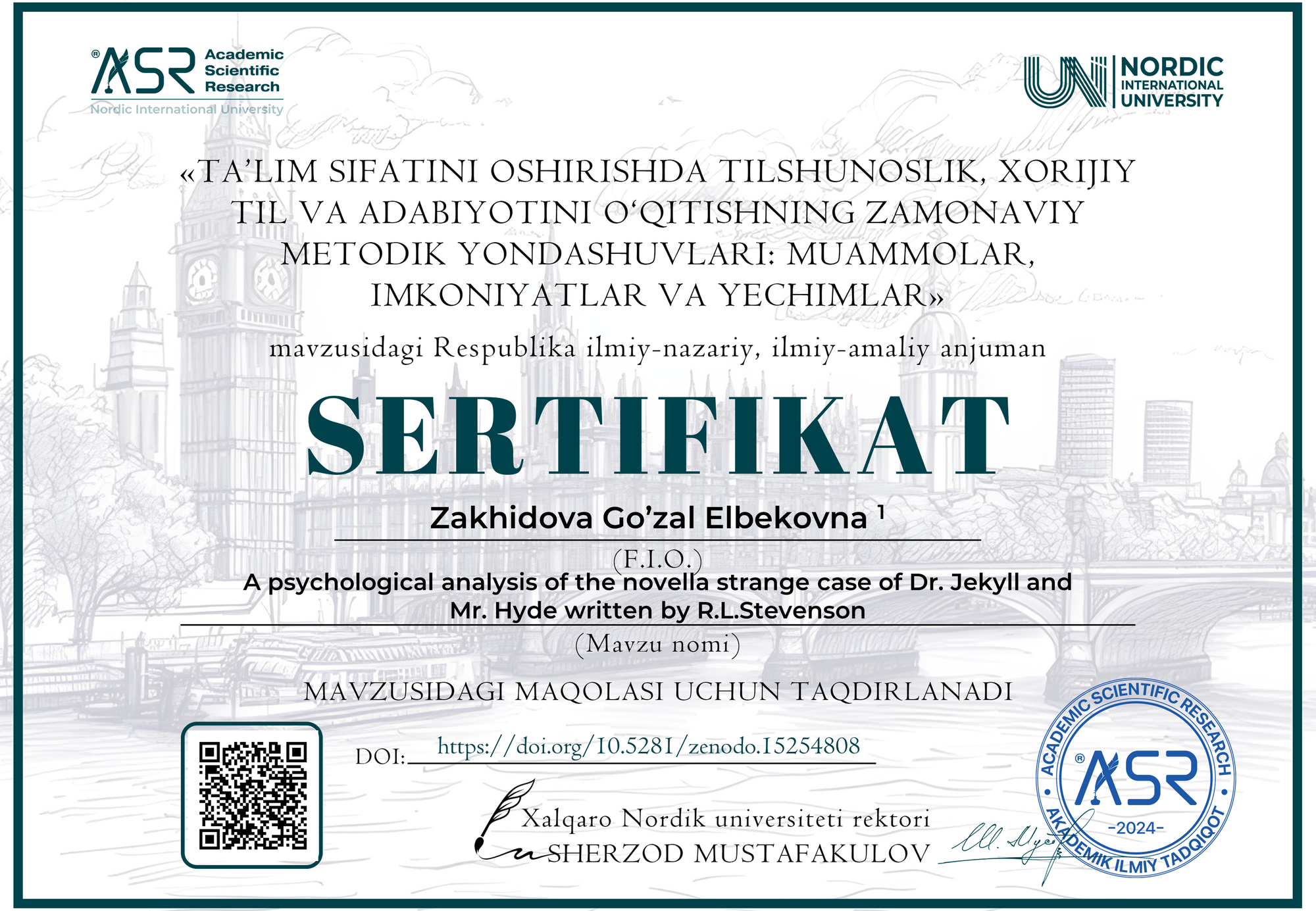Zakhidova Go’zal Elbekovna 1

DOI: https://doi.org/10.5281/zenodo.15254808
Google scholar:
Zenodo community: https://zenodo.org/records/15254808
Nordic_press journal: https://research.nordicuniversity.org/index.php/nordic/article/view/2385
MAQOLANI YUKLAB OLISH
SERTIFIKATNI YUKLAB OLISH
REVIEW:
This article provides a compelling and well-structured psychological examination of Robert Louis Stevenson’s Strange Case of Dr. Jekyll and Mr. Hyde, focusing primarily on Carl Jung’s theory of the shadow and Sigmund Freud’s structural model of the psyche. The author, Zahidova Go’zal Elbekovna, succeeds in linking literary analysis with deep psychoanalytical interpretation, offering insights that are both academically rigorous and intellectually engaging.
The strength of the article lies in its dual focus: on one hand, it explores the literary depth of Stevenson’s novella; on the other, it thoughtfully applies psychological theories to explain the internal struggles of the protagonist. Particularly commendable is the way the author interprets Dr. Jekyll’s repression and fragmentation as a reflection of Victorian social norms and moral rigidity.
The literature review section is well-sourced, drawing from key figures like Freud, Jung, and modern scholars such as Fernandes and Seed. The discussion of duality — both from psychological and philosophical perspectives — enriches the reader’s understanding of the human condition as portrayed in the novella.
Moreover, the paper does not limit itself to theoretical discourse. It highlights the contemporary relevance of Stevenson’s work, showing how the Jekyll-Hyde duality continues to resonate in popular culture and modern psychological discussions.
However, the article could be strengthened by including more engagement with recent critical scholarship beyond 2010, as well as by refining some stylistic elements for smoother academic flow. A minor improvement in transitions between sections and consistent referencing style would elevate the scholarly impact further.
Conclusion:
Zahidova’s article is a valuable contribution to both literary and psychological studies. It presents a nuanced understanding of the complex themes of identity, repression, and moral conflict. It will be particularly useful for students and researchers interested in interdisciplinary approaches to literature, especially those exploring psychoanalysis and narrative psychology.Recommendation: Highly recommended for inclusion in journals or conferences related to literary criticism, psychology in literature, or interdisciplinary humanities.



